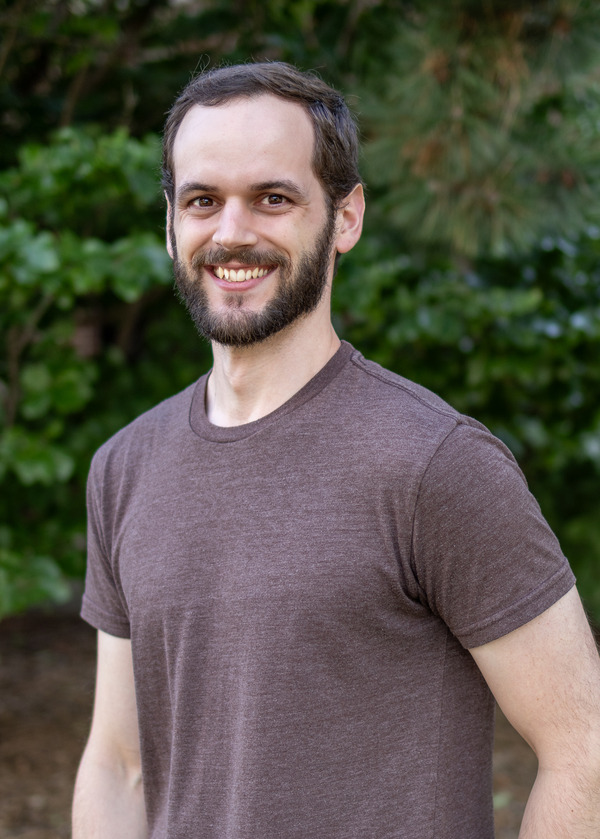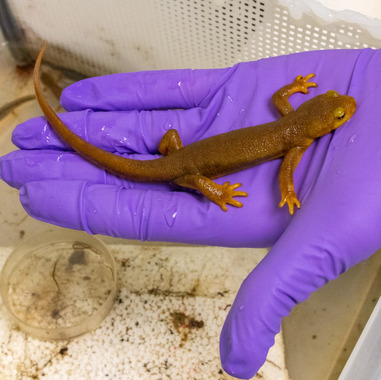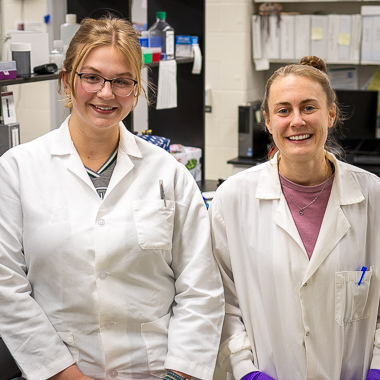Troy Burtchett Awarded Dissertation Completion Fellowship
MGI doctoral student Troy Burtchett has been selected to receive a Dissertation Completion Fellowship. The fellowship is supported by the MSU Graduate School, while the College of Natural Science selects the award winners within the college. The purpose of the award is to provide funding to graduate students in their final semester, allowing them to focus solely on completing their dissertation.

MGI doctoral student Troy Burtchett
By Debbie Walton
Burchett works in Associate Professor Neal Hammer’s lab and is researching Staphylococcus aureus, or “Staph,” a bacterium commonly found on the skin and in the noses of healthy people. While it’s often harmless, Staph can cause infections if it enters the body through a break in the skin. These infections can range from minor issues to more serious problems such as bloodstream infections, pneumonia, or surgical wound infections. Treatment typically relies, at least in part, on antibiotics, however some Staph strains, such as MRSA (methicillin-resistant Staphylococcus aureus), are becoming antibiotic-resistant and more difficult to treat, even with the most powerful medications. So, researchers are looking for alternative ways to treat infections.
Burtchett is investigating how a polymer called lipoteichoic acid in Staph’s cell envelope affects the ways the bacterium generates the energy it needs to survive and infect its host.
“If you think about the energy-generating pathways that are available to cells: you can ferment in order to generate the energy you need, you can respire using oxygen, or you can anaerobically respire - use another electron acceptor that is not oxygen,” said Burtchett. “Staph has a greater degree of metabolic versatility compared to other bacteria because it has two different pathways to achieve aerobic respiration. Also, it has a couple of different enzymes that can enable it to perform fermentation under different environments in the host.”
“My research is basically looking at the pathways that might be potential targets to limit that metabolic versatility, because as research is coming out, we’re finding that the ability to switch between these different metabolic states is important for establishing infection.”
By disrupting both aerobic respiration and fermentation, it may be possible to incapacitate
the pathogen’s energy generation, reducing its ability to colonize host tissues. Burchett’s
research could pave the way for innovative treatments against these challenging infections.
Both Burchett and Hammer expressed their gratitude to the Graduate School and the
College of Natural Science for their support.
“To me, this award means the peace of mind knowing my final semester will be funded, and I can dedicate more time to completing my research and finalizing my dissertation so that I can make a meaningful contribution to my field,” Burtchett said.
“We are exceedingly grateful for the support from the Graduate School and the College of Natural Science,” said Hammer. “Troy has made significant contributions to our understanding of how metabolism affects S. aureus pathogenicity and antibiotic resistance. I look forward to publishing his next paper, helping prepare for his thesis defense, and sending him off on his next scientific adventure!”



